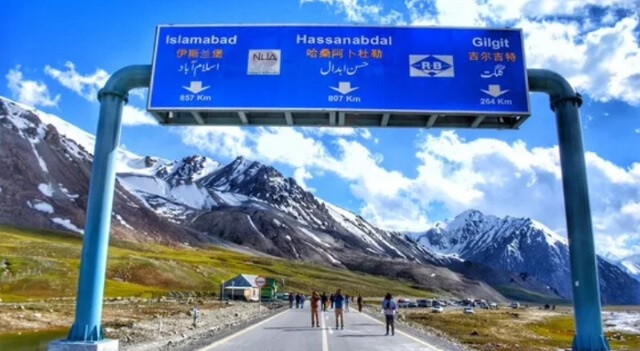There seems no improvement in Gilgit – Baltistan situation; rights abuses are unabated in the disputed territory, presently administered by Pakistan. A number of political activists are still behind the bars for raising voice for the rights of the two million disenfranchised people of the region formerly known as the Northern Areas.
Gilgit-Baltistan (GB) constitutes the northern portion of the larger Kashmir region which has been the subject of a dispute between India and Pakistan since 1947, and between India and China from somewhat later. It is six times larger than PoK in terms of geographical area. Gilgit-Baltistan covers an area of over 72,971 km2 (28,174 sq. mi) and is highly mountainous. It has an estimated population of 1,492,924.
Officially, the Pakistan government has rejected calls for GB’s integration with Pakistan on the grounds that it would jeopardise its demands for the whole Kashmir issue to be resolved according to UN resolutions. Currently, Gilgit-Baltistan has a semi-provincial status.
Some Kashmiri nationalist groups, such as the Jammu and Kashmir Liberation Front, claim Gilgit-Baltistan as part of a future independent state to match what existed in 1947. New Delhi on the other hand, maintains that Gilgit-Baltistan is a part of the former princely state of Jammu and Kashmir that is an integral part of India.

The region has now asserted itself against the hegemony of Pakistan with mass protests against electricity shortages, reduction in the wheat quota, taxation, and alleged land grabbing. The frequent protests have been superheated by the Awami Action Committee — an alliance of various political, religious, and trade associations.
GB region huge potential of solar, and wind energies and hydro resources. Yet, due to a lack of proper energy policy, infrastructural development, and investment barriers, the region daily experiences power shortages. 86 per cent of the people who live in villages, still depend on firewood, kerosene oil, and dung cakes. From what is in public domain, it is clear that Pakistan’s establishment is not interested in seeing the region prosperous and self-independent. The current energy mix of the GB region is 45% firewood, 30% LPG, 19% electricity (hydro power), and 6% kerosene oil.
GB contributes minutely to the economy of Pakistan despite having immense economic potential in the form of tourist attractions, massive resources of renewable energy, deposits of minerals and precious stones as well as its geopolitical location that facilitates the only road crossing trade link between Pakistan and China — the linchpin of CPEC.
Power shortages are endemic in summer and winter alike. The local government and international organizations have shown interest in financing community-based micro-hydro stations. Plenty of mini and micro-hydro sites have been identified across GB but Pakistan has left the region plunged in darkness.

Land issue is grave in GB. In fact, it has persisted for decades. It acquired urgency after 2015 when the authorities started acquiring more and more land in the name of development and security for the multi-billion dollar China Pakistan Economic Corridor, CPEC that takes off from Xinjiang province and ends on the Arabian coast of Balochistan.
Locals are unhappy with the unfolding land grab. Their objection is two-fold. One the region is disputed and has not yet been constitutionally integrated into Pakistan. Two the common land in GB is used for community activities like livestock grazing besides collecting firewood for centuries.
Interestingly, in the Pakistan Land Revenue Act, which was extended to GB, this common land is not shown as government land. With the rise in population and the sudden spike in prices, the value of land increased manifold, and the conflict between the state and the people started. They are demanding compensation for the land given to state institutions and the cancellation of illegal allotments to land mafia.
People have been protesting against land grabbing by the Army as well. The Generals, in a secret agreement with local politicians, have been illegally grabbing public land under different pretexts. Many accuse Chief Minister Khalid Khurshid of siding with the Generals in the open loot of public land. The Army has been quick to clamp down on protesters by charging them as terrorists. Two months ago, in December, 2022 the region witnessed several raging public protests at the detention of youngsters for protesting against the Army.
The most distressing aspect of these acts causing severe damage is the rampant manner in which rights of GB people stand trampled and their cries unheard beyond the mountainous region.
(Poreg)

